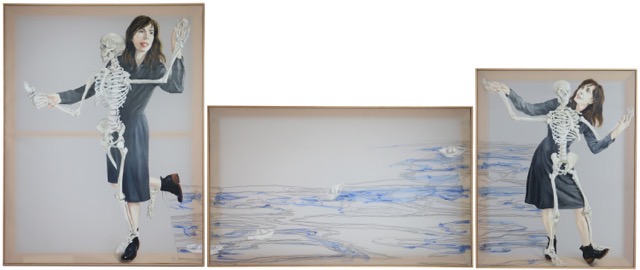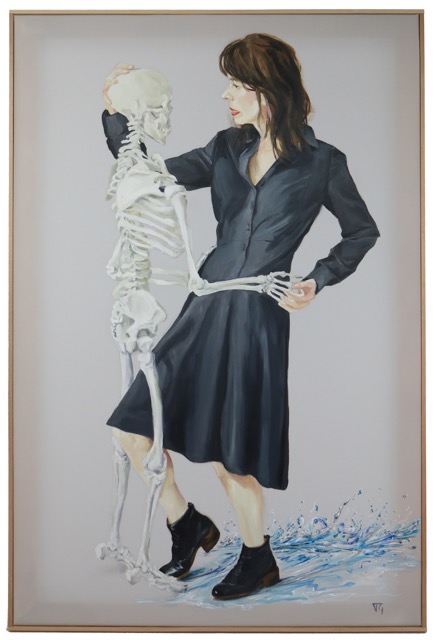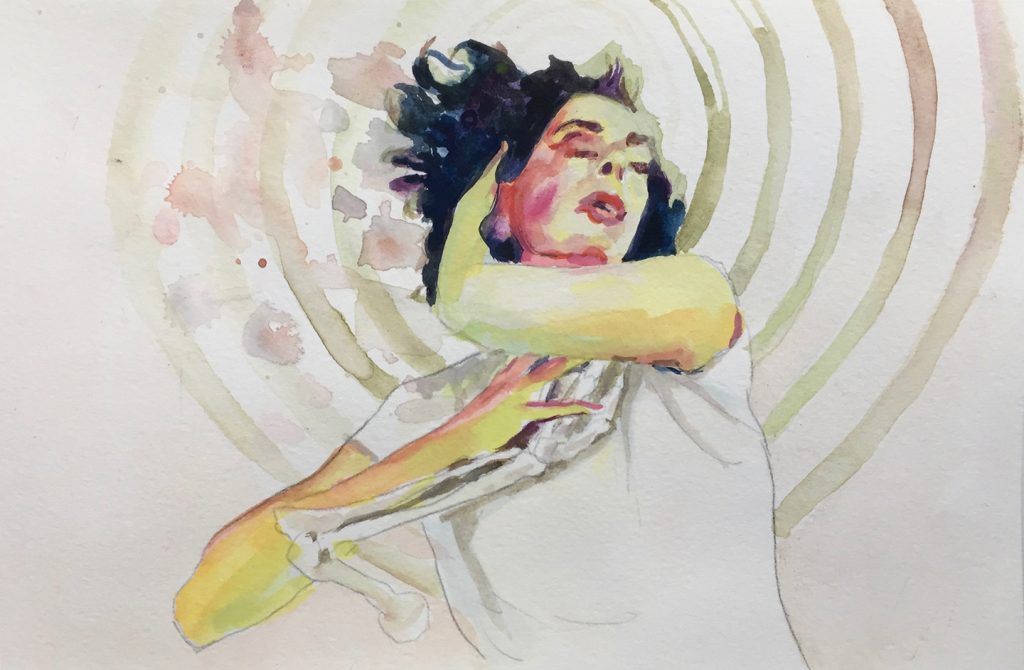In this three panel painting, Wet Foot Dry Foot Dancer, I wanted to revisit the immigration exception that privileges Cubans seeking asylum in the USA. Just this week, the captain of Cuba’s soccer team defected to the

I don’t use the term asylum loosely when referring to Yasmani Lopez’s defection. While many will look at Cuba’s dire economic status to explain why 54,000 Cubans sought and obtained permanent residency, anyone willing to look past the Castro charm with public relations and revolutionary branding (frankly, I fail to see what is so revolutionary about a dictatorship), will recognize that Cuban citizens are still persecuted for their dissent.

Don’t take my word for it…just Google Tania Bruguera and read about how the Cuban government has detained, interrogated, jailed, and unlawfully seized her passport numerous times, simply for speaking, or inviting others to speak as part of her artwork.

My point, however, is that refugees and immigrants are desperate in their search for freedom, and in their search for a sustainable life. I had a student from Eritrea who routinely went without any food whatsoever for 3-5 days. Week in week out. That was (and continues to be the norm) in a land wracked by famine. When his family won the immigration lottery and was given entry to the USA, he was shocked. He was shocked when he went to school and saw that ALL the children ate lunch. Every. Single. Day. He couldn’t wrap his head around it. I can’t either. How is that kind of crushing suffering not considered an oppression?
I am super and forever grateful to have been granted asylum in the USA. To be a citizen. But this privilege doesn’t blind me to the fact that dehumanizing poverty is every bit as oppressive as a communist dictatorship like Cuba. I don’t think you can put a value of one kind of suffering over another, to say, one kind of immigrant is better than another.